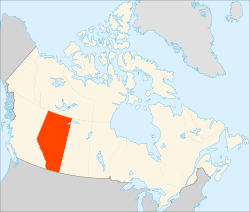Last week, I was in England to attend an Oxford conference on the noble but almost hopeless notion of international tax co-ordination. Far more exciting was discussing with colleagues and following the media coverage about the U.K. Conservatives’ confidence vote testing the leadership of Prime Minister Theresa May over Brexit.
May managed to hang on but, at best, her agreement with the EU for an orderly Brexit is on life support. Of 317 Tory MPs, 117 backbenchers voted to oust May. They were especially dissatisfied with the “Irish backstop.” That proposal, which May negotiated with the EU, would require all of the United Kingdom to remain bound to the EU customs union for years after March 29th’s Brexit deadline. That would last until the U.K. and EU can agree on a plan to avoid installing a hard customs border between the independent Republic of Ireland, which is staying in the EU, and Northern Ireland which, as part of Britain, is Brexiting. Hard borders have a bad history in that part of the world.
But while remaining in or leaving the EU raises important political and economic issues for Britain over tax, immigration, trade policies and more, the decision is not an existential threat to Britain’s independence, which will endure no matter what international agreements the government makes or breaks. Such is not the case in Alberta, where interest in separation — you might call it an Albexit — is growing quickly.
The possibility of leaving Alberta oil wealth in the ground, while world demand — already at 100 million barrels per day — keeps growing at a robust 1.5 per cent each year, is an existential threat to the province. Despite endless promises from so many self-appointed prophets of a renewable future, demand for oil continues to rise since it is needed for petrochemicals (such as all those plastics in all our tech gadgets) as well as air, sea, rail and short- and long-haul road transport. Even with rising production of electric vehicles, all the credible energy agencies project that demand for oil in 2050 will be as high as or higher than demand today.

Yet, Alberta is looking at being forced to sit it out, thanks to political decisions being made by Canadians outside the province. Because of the lack of pipeline capacity promoted by environmentalists who push for Canada to be a “climate leader,” and the politicians who play along, Albertans are losing high-paying jobs, wealth, government revenues and foreign investment in the oilpatch. The lack of support from other provinces — especially British Columbia and Quebec — is raising questions about Alberta’s place in Confederation. Quebec’s premier, François Legault, recently called Alberta’s oil “dirty energy” and said he doesn’t want it piped through his province, even as Quebec imports substantial volumes of that supposedly undesirable Alberta oil through Enbridge Line 9. Albertans can’t help but wonder why they should stand for being slapped in the face after the federal government, Quebec and the rest of Canada have been happy to take the hundreds of billions of dollars that Albertans and their “dirty” oil have provided them over the decades.
The possibility of leaving its oil wealth in the ground is Alberta’s existential threat
Growing interest in an Albexit is a major problem for the federal government as its ambivalent policies are helping to stoke interest in separation. While Ottawa appears determined to salvage the so-far moribund Trans Mountain pipeline expansion, the Trudeau government’s decision to ban tankers in northern B.C. killed the previously approved Northern Gateway pipeline and has thwarted other proposals, such as the Indigenous-owned Eagle Spirit pipeline. Bill C-69, which proposes to drastically change the approval process for resource projects, is bitterly opposed in Alberta for fear the new process will make it nearly impossible to build pipelines in the future. New carbon policies, including the proposed federal fuel mandate, will further inflate costs for the resource business in Canada. The Trudeau government’s announcement Tuesday that it would provide $1.6 billion in non-forgivable loans for cash-constrained small firms, clean growth projects and market diversification initiatives, don’t even touch the root of the problem: removing federal obstacles to building pipelines and bringing back greenfield investment to Alberta’s beleaguered oil and gas sector.
It’s typical to pooh-pooh the possibility of Alberta separation as unrealistic, given the close familial and economic relationships Albertans have with other parts of Canada. But if Brexit happened, then Albexit is just as possible. Probably more so, given the existential threat to Alberta’s prosperity over resource development.
Whatever negatives Alberta would face are easily swamped by the positives that would come with separation. Alberta can choose its own environmentally responsible oil and gas development policies without federal interference, which typically reflects the interests of Central Canada and not the West. Alberta can choose how it wishes to tax itself and organize its health and pension system. It could develop its own trading relationship with the United States and the rest of Canada as it see fits. If Saskatchewan wished to join Alberta in separation, it would bring to fruition a proposal made before 1905 that would have led to a single, more powerful province (called Buffalo), but was kiboshed by then Liberal prime minister Wilfrid Laurier.
Alberta will also be able to keep for itself the annual $20 billion more it sends each year to Ottawa in taxes than it gets back in federal spending (that $20 billion is roughly six per cent of the province’s GDP). Hard borders and potential trade barriers with the rest of Canada would be a cost, but these would be subject to negotiation — and would they really be drastically worse than current internal barriers to trade (including pipeline obstacles) that already exist between provinces? The national debt assumed by Alberta would be contentious, since Alberta would seek a credit for the $220 billion in net transfers its made to the rest of Canada over the past decade.
> La suite sur le Financial Post.






























